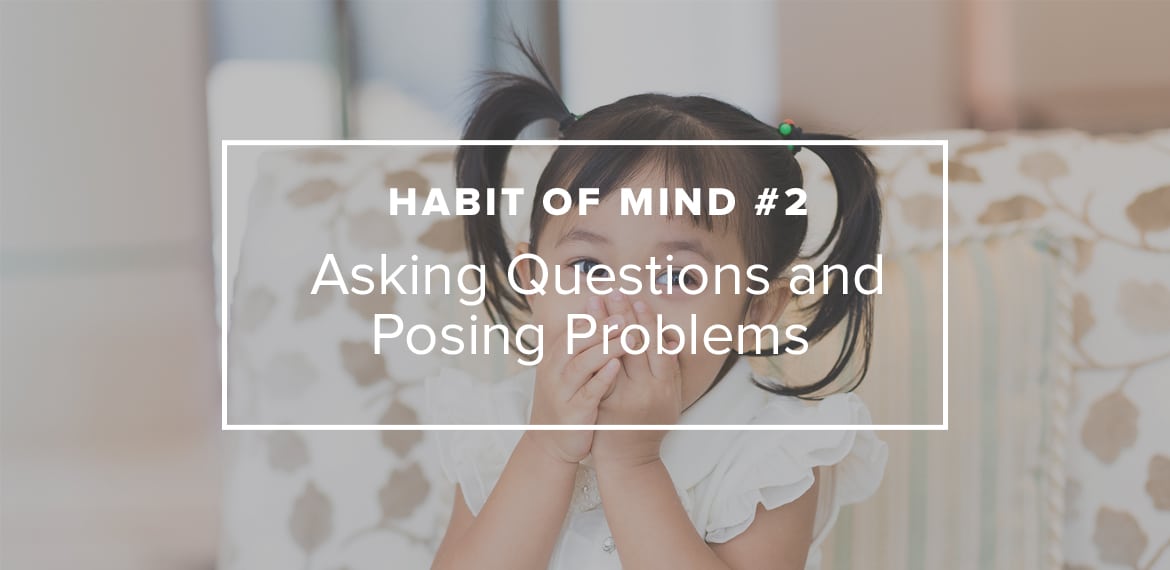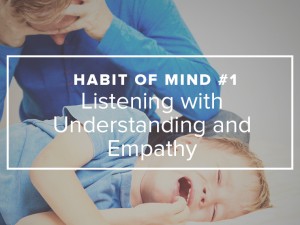This article is part of a mini-series by Dr Henry Toi (Affiliate Director of the Institute for the Habits of Mind) who will share and explain the ways you can guide your children to cultivating good, lifelong habits.
When my kids were 4 and 5 years old, they asked questions incessantly and sometimes, inappropriately. I remember on one train ride my daughter asked me quite loudly, “Why is the aunty so fat?” You can imagine the awkwardness and subsequent “uh-oh” moment. Other times they would ask a rather mind-boggling one such as, “How do goldfish sleep?” – which would leave most parents quite stumped. Thus, parents learn the skill of deflecting questions by changing the subject or throwing in another question like, “Why do you take so long to finish your dinner?”
Kids Ask Vexing Questions Most of the Time

For this reason, children ask questions to discover and understand the world around them. But when parents find themselves unable to respond intelligently, they resort to giving half-baked answers, avoidance, and a general lack of interest. These type of responses signal to children that asking too many questions irritates their parents, or may even be socially unacceptable. Over time, they stop asking questions altogether.
So Learn to Give the “Right” Answers
The main culprits for making parents such poor teachers usually boil down to time, ability and your state of mind. Let’s explore how we can help inculcate and manage our children’s inquisitive nature, minus the nervous breakdown.
Time is often a big barrier to handling questions effectively. The easy way to worm yourself out of it is to tell your child, “Why don’t you ask Daddy (or Mummy)? He (she) is the smarter one.” (This may incidentally be the only time a spouse says the other is smarter). If you need more time to research the answer, simply tell your child that you will help him find out 
So far, we have assumed that your child is asking more questions than you can handle. But what should you do if your child is the cool, quiet type who don’t seem to ask enough questions? In this case, your job would be to prompt. You can start by asking about your surroundings, for example if you are in the car with your child, you can ask, “Why do you think all these vehicles have number plates?” or when you are having a meal you might ask, “Why do we eat three meals a day?”. Even if your child does not answer the questions, he will start to think about it, even if he doesn’t seem to be doing so.
And Learn to Use Questions Instead of Just Asking Them!
This brings us to the third and intriguing aspect of questioning – questioning as a key driver of our action and behaviour. While you are reading this, take a moment to reflect on your #ootd (for the uninitiated, this hashtag refers to your “outfit of the day”). While rummaging through your wardrobe this morning, perhaps some of these questions cross your mind – Whom am I meeting today? What’s the most comfortable for the weather today? Where are the places I will be visiting or going to? As you would realize by now, this example clearly shows how questions is the driver behind some of our actions.
We could thus use questions to help our children think about their behavior, and gain a deeper understanding behind the choices they make. For example, in order to know why your child misbehave and refuse to share a toy with his sibling, you will have to find out what question(s) and conclusions that your child formulate in his mind. This formulation is sometimes known as making assumptions. The questions your stubborn child have asked himself could be something along the lines of “If I share this, will I get it back?” or “Jenny did not share her toy with me the last time, why should I share my toy with her now?” Knowing this, you can choose to question – “Johnny, why don’t you want to share the toy?” instead of scolding.
Questions can also be an indicator that our child is ready to learn. Be alert to the moment when your child start asking questions about certain topics, as it indicates that he is ready to learn about it. As Confucius said “When the student is ready, the teacher will appear”, you have the great honour and responsibility to be that teacher. The art of questions can therefore be a powerful parenting tool to manage our child’s behaviour and to help him learn.








